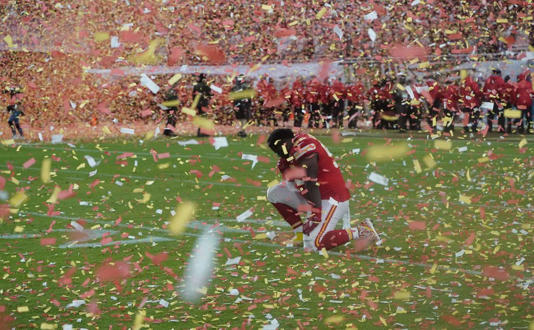Race hustling: How The NFL Continues To Unsurprisingly Fall Short On Promised Diversity Efforts
https://www.msn.com/en-us/sports/nfl/how-the-nfl-continues-to-unsurprisingly-fall-short-on-promised-diversity-efforts/ar-AATCnlv?ocid=msedgdhp&pc=U531
f you’re interested in sharing your opinion on any cultural, political or personal topic, create an account here and check out our how-to post to learn more.
____
On the first day of Black History, news broke of a potential class-action lawsuit filed by Brian Flores against the NFL. Flores is the former head coach of the Miami Dolphins football team. The lawsuit alleges racist discrimination in the hiring practices of NFL teams. He explicitly names three NFL teams in the lawsuit.
Not only did this announcement come during the first day of Black History Month, but it also comes ahead of the star-studded NFL Super Bowl halftime show that features Mary J. Blige, Dr. Dre and Snoop Dog.
After two years of painting messages like “end racism” on football fields and printing anti-racist slogans on t-shirts, the NFL’s commitment to doing so is falling short. Brian Flores' lawsuit is a reminder that statements, slogans, PR campaigns and partnerships with Black entertainers are not sufficient for addressing systemic racism.
Out of 32 NFL teams, Mike Tomlin is the only Black coach. More than 70% of NFL players are Black. This fact alone says more about the NFL's work on fighting systemic racism than any quote on a jersey, message in the end zone or financial partnership with a Black entertainer. The NFL has had ample time to address the lack of diversity among its ranks in general manager positions, head coaches, coordinator positions and key front-office positions.
The initial reaction from the NFL insisted that the claims were without merit. Not only did the NFL reject the claims of Flores as baseless, so has each of the teams cited in the lawsuit.
Now, days later, the NFL has admitted that its diversity efforts have fallen short.
The Flores camp said the following, regarding the NFL’s new released admission of guilt, and it's one that other businesses, corporations and organizations need to reflect on:
"For too many years, the NFL has hid behind the cover of foundations that were supposed to protect the rights of Black players and coaches, all while letting systemic racial bias fester in its front offices. The NFL is now rolling out the same playbook yet again and that is precisely why this lawsuit was filed. We would be pleased to talk to the Commissioner about real change, but unfortunately, he has not reached out to us to engage in such a discussion. In fact, nobody from the NFL has reached out to us. Absent such a discussion followed by unbiased and concrete change, we believe that a court or governmental agency must order a federal monitor to oversee the NFL as the NFL cannot continue to police itself."
In the words of Dr. Martin Luther King, Jr., the NFL, like America, has given its Black coaches, Black players and its Black fanbase “a bad check,” “a check that has come back marked ‘insufficient funds.’”
What good is it to provide financial support to entities outside of your organization when you have employees who are experiencing racism, microaggressions, gendered racism and discrimination within your ranks? How can real change begin when the very people who are experiencing oppressive environments and systems must be the ones to call it out? And then, those very same people are gaslit and ignored by their leaders.
Something must change. The NFL and team owners have known for many years that there have been issues with the hiring and retention of Black coaches, coordinators and General Managers. The NFL knew it when they instituted the “Rooney Rule” in 2003. When the Rooney Rule was put in place, there were three Black head coaches in the NFL. In 2022, 19 years after the Rooney Rule was created, there is currently only one Black head coach in the NFL. Where is the lie here?
Regardless of the outcome of the lawsuit, it is evident that the league, like most majority white workplaces, organizations and companies, must take a deep look at itself in the mirror.
It's time for corporations, companies and organizations like the NFL to own its racism outright. It's time for U.S. institutions and systems to take micro and macro-ownership of systemic oppression and racism. No organization or entity is exempt from the current and historical reach and impact of systemic racism and systemic oppression in the U.S.
It is beyond time for the NFL to make good on its commitment to “end racism” — and it should start at the league's own front door.


Comments
Post a Comment